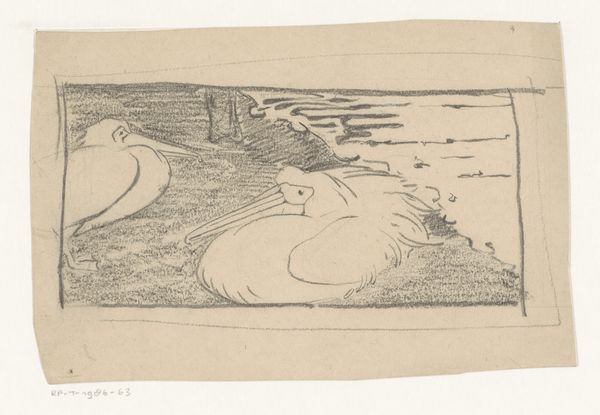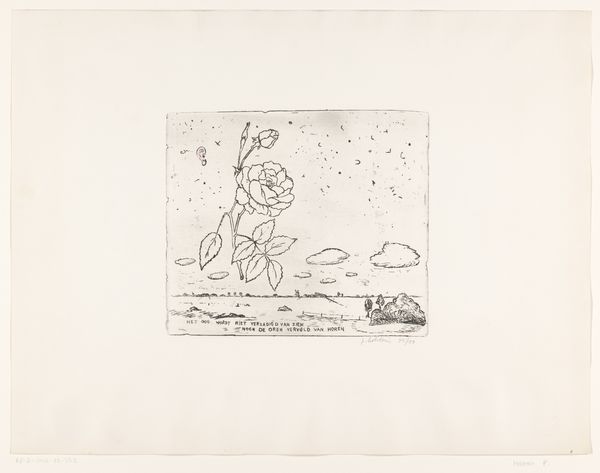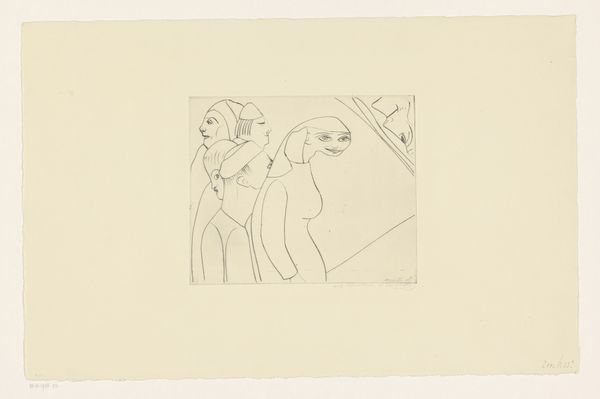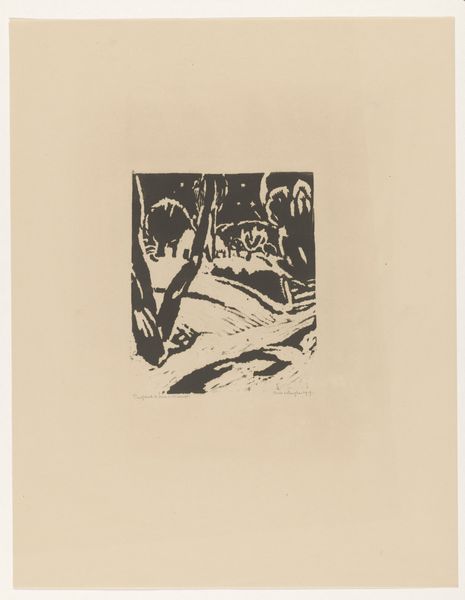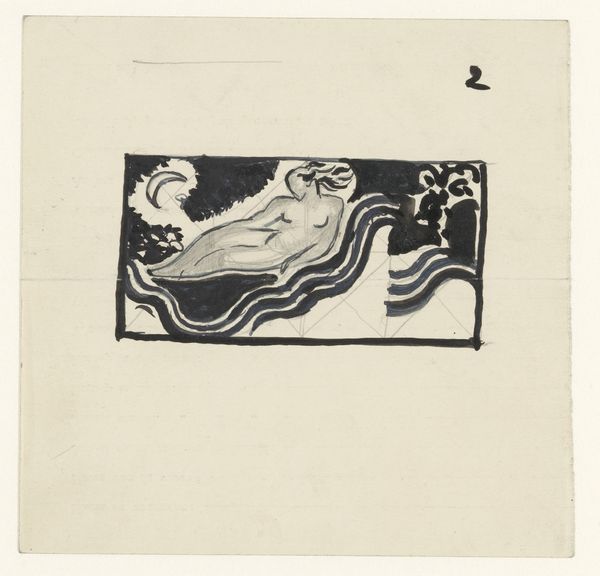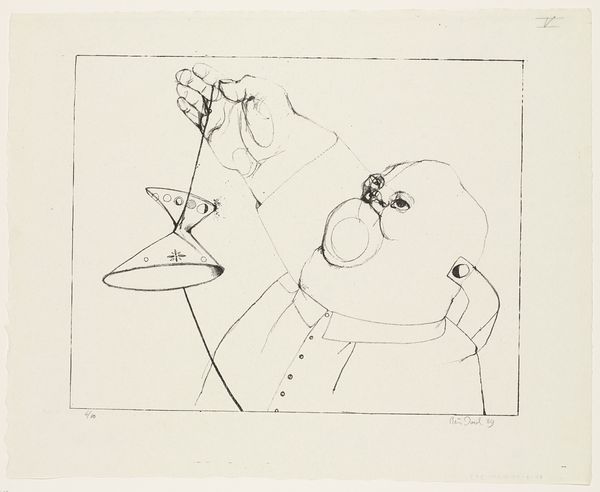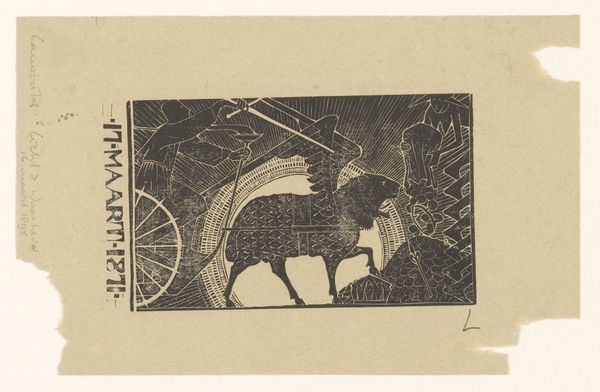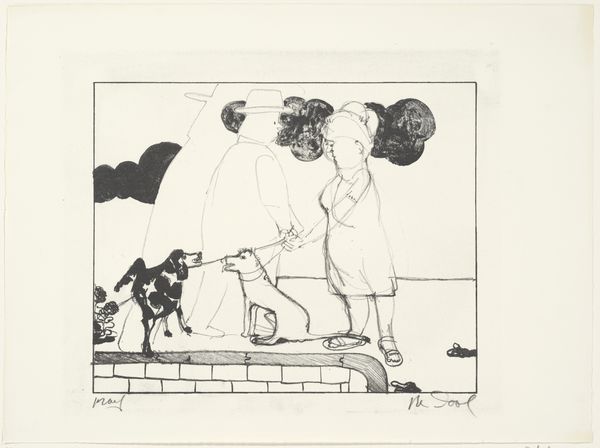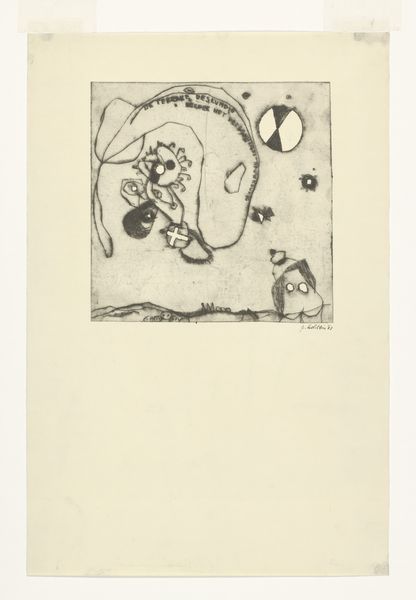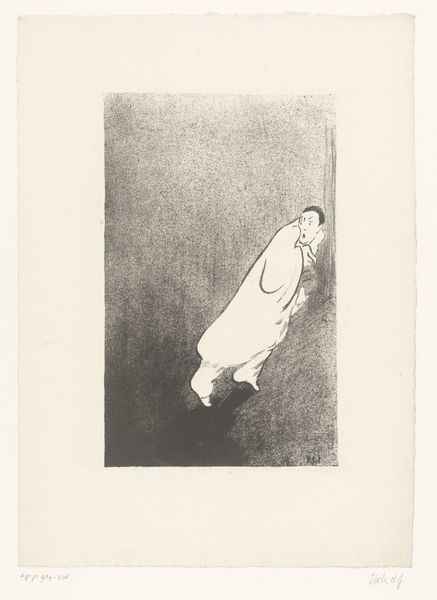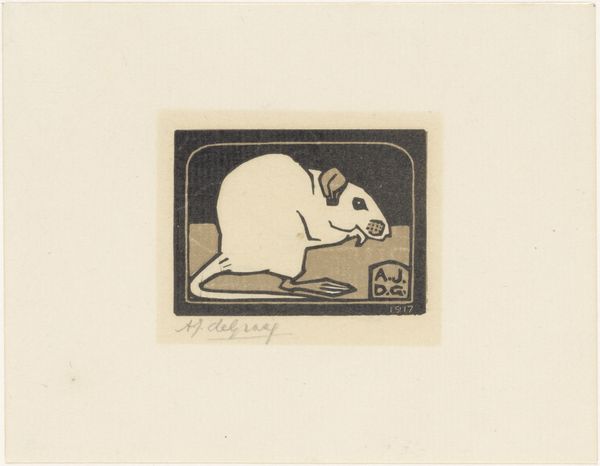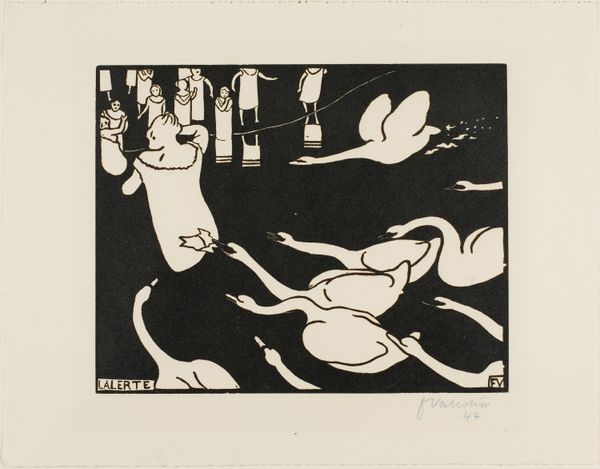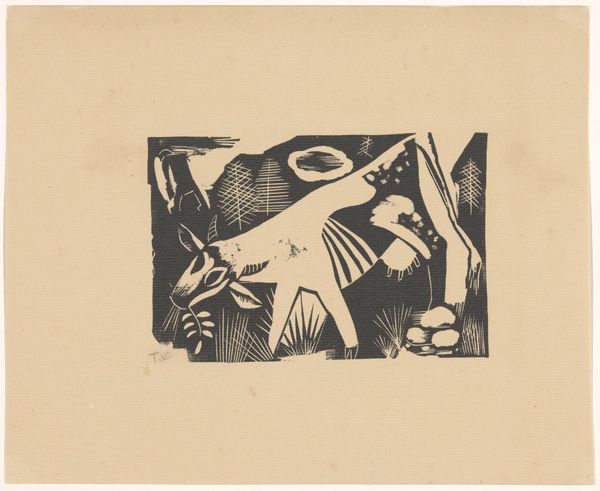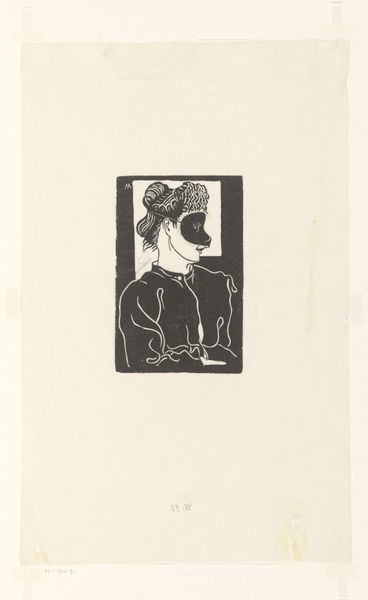
print, woodcut
# print
#
french
#
woodcut
#
line
#
symbolism
#
cityscape
Dimensions: height 261 mm, width 350 mm
Copyright: Rijks Museum: Open Domain
Félix Edouard Vallotton created this woodcut, titled ‘Two Gentlemen and a Lady by a Carriage,’ in France during the late 19th century. The stark contrast between light and dark creates a mood of mystery and intrigue. The image depicts a lady in a white gown standing near a carriage while two men look on. This scene evokes the social rituals of the Parisian upper class. Vallotton was associated with the Nabis, a group of artists interested in challenging academic artistic conventions. Woodcuts were a popular medium for social commentary at this time. The printmaking allowed artists to produce images quickly and distribute them widely through journals and newspapers. Vallotton often used his prints to critique the bourgeoisie and expose social tensions. His work often appeared in the Revue Blanche, a magazine known for its progressive politics and artistic experimentation. To understand Vallotton's work, we might look at periodicals, investigate the history of printmaking, and study the art market of 1890s Paris. Art's meaning changes over time, as new social contexts allow us to ask different questions of it.
Comments
No comments
Be the first to comment and join the conversation on the ultimate creative platform.
